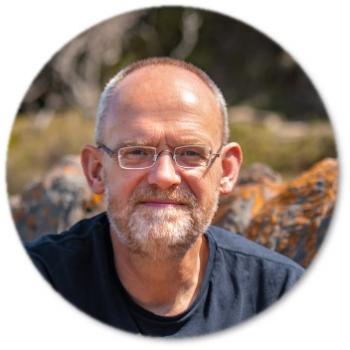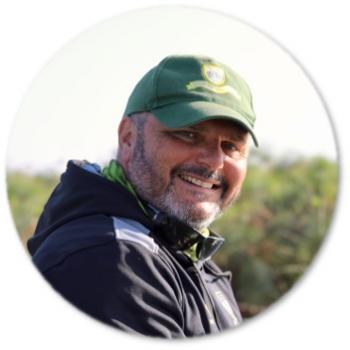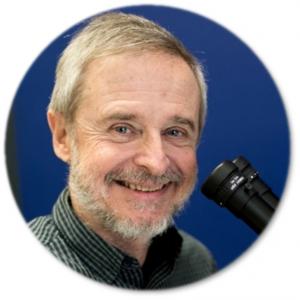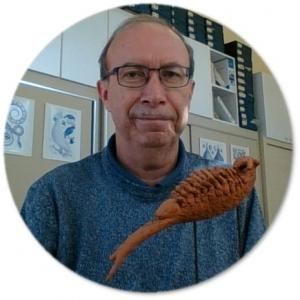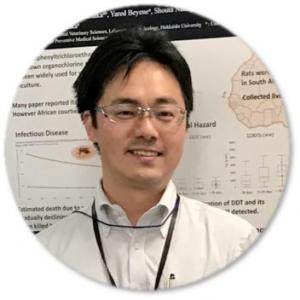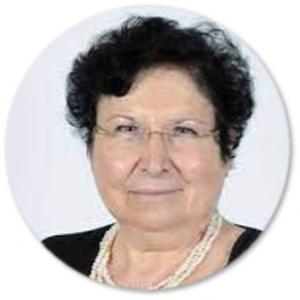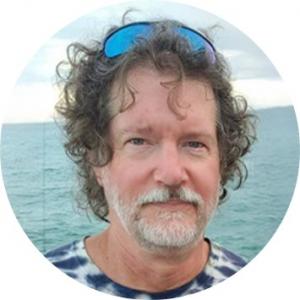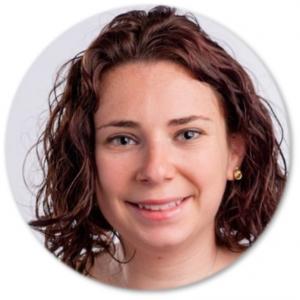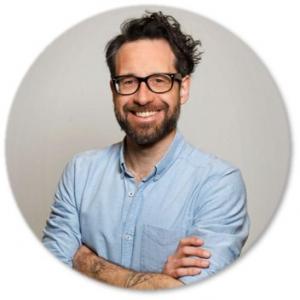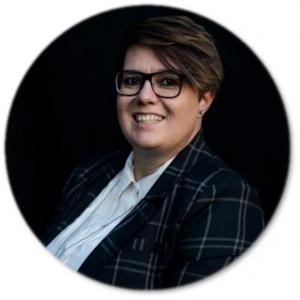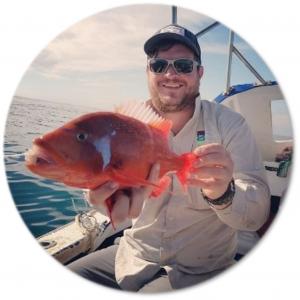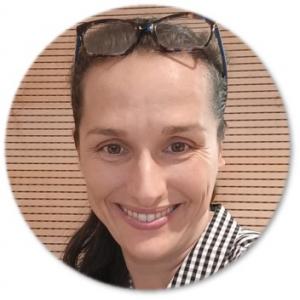ProfessorBernd Suresbernd.sures@uni-due.de; Bernd.Sures@nwu.ac.za
|
The research of Bernd Sures is of immense societal relevance. At its core, it focuses on understanding the occurrence and effects of multiple stressors in aquatic ecosystems, which is essential for comprehending healthy ecosystems. These, in turn, are a crucial part of a healthy environment and fundamental to human well-being. Professor Sures is nationally and internationally renowned for his outstanding research in parasitology and ecotoxicology, with over 250 internationally peer-reviewed articles documenting his work. Many insights into parasites and their significance, including assessing the ecological state of our environment, are attributed to his pioneering efforts. As the spokesperson for the DFG Collaborative Research Center 1439 “Degradation and Recovery of Freshwater Ecosystems Under Multiple Stressors – RESIST” (https://sfb-resist.de/), incorporating many of his research questions, he works with an interdisciplinary, excellent research team on one of the most pressing issues of our time: How do environmental stressors impact the biodiversity and function of our waters, and how can ecological restorations succeed optimally? |
|
Prof Glyn Howatson is a Professor in Human and Applied Physiology and The Dean of the Graduate School at Northumbria University where he provides strategic research leadership to the wider institution. Glyn is a Fellow of The European College of Sport Sciences, The American College of Sports Medicine, and The British Association of Sport and Exercise Sciences (BASES), he is on the Editorial Board for the Scandinavian Journal of Medicine and Science in Sports and the European Journal of Sport Sciences. His research interests predominantly lie in the optimisation of human performance, where he focuses his efforts on understanding the stress-recovery-adaptation continuum using training, recovery, and nutritional interventions to manipulate human physiology. Glyn collaborates extensively with colleagues across the globe in academia, elite sport, national governing bodies and industry. His work as an applied physiologist and researcher has contributed to the support of numerous international athletes that include, European, World and Olympic medallists. He continues to work closely with colleagues across a number of areas of research and innovation to enhance performance, facilitate exercise recovery and optimise neuromuscular adaptation. |
ProfessorGlyn Howatsonglyn.howatson@northumbria.ac.uk
|
ProfessorNiel L. Bruce
|
Niel Bruce is a world expert on marine isopod crustaceans, a group of small sized, abundant and diverse crustaceans related to crabs and shrimp. His research began with an Honours thesis on the taxonomy of isopod crustaceans from the Red Sea. That interest in tropical crustaceans has continued to the present day.
Niel has written more than 150 scientific papers, numerous reports and popular articles including five monographs and two edited books. He has worked at the Smithsonian Institution, Australian Museum, Zoological Museum in Copenhagen as Curator of Crustacea and most recently at the National Institute of Water and Atmospheric Research in New Zealand as head of the Marine Invertebrate Biodiversity and Collections programs. Niel joined the Queensland Museum in 2007 as Senior Curator at the Museum of Tropical Queensland in Townsville. Niel's research continues to focus on the taxonomy, systematics, biogeography and biodiversity of tropical marine isopods, both free living and parasitic forms. He has described or redescribed more than 400 species, 40 new genera and three new families of marine isopod. Present research focuses on Great Barrier Reef isopods, using this work as the basis for higher level revisions of Australian isopods. The recent prime focus of work has been the systematics of the Asellota (a group of small isopods) from Australian coral reefs, funded by ABRS and CReefs–BHP Billiton. The other primary research focus, through graduate students, is revisions of fish parasitic isopods of Southern Africa and Australia Queensland Museum research collections of coral-reef isopods have been built from extensive field work on the Great Barrier Reef, and throughout the Indo-Pacific from Fiji and Papua New Guinea, the Great Barrier Reef, Western Australia and the Western Indian Ocean at South Africa, Mauritius, Zanzibar and Kenya.
|
| Luc Brendonck is head of the laboratory and research professor with 25 years of experience within aquatic ecology, taxonomy, ecotoxicology, sustainable development, evolutionary ecology and ecological biogeography. Mainly, temporary wetlands and their invertebrate communities were used to assess diversity patterns in relation to environmental conditions (e.g. land use) and as models to analyze ecological and evolutionary processes. The involvement of Prof L. Brendonck as the Flemish project leader is premised on his extensive involvement with VLIR-UOS projects in Africa (see below). He has led about 20 multidisciplinary field excursions with staff and students in Zimbabwe and South Africa. He also has vast experience in monitoring of water quality and in aquatic ecology in Southern Africa and in integrated water resources management. He is therefore aware of the vast needs of the region. He is currently also participating as Flemish UNESCO expert in aquatic ecology in arid and semi-arid regions and is UNESCO advisor within FET-water (framework for education and training in water) in South Africa. |
ProfessorLuc Brendonck
|
ProfessorYoshinori Ikenakay_ikenaka@vetmed.hokudai.ac.jp
|
Yoshinori Ikenaka is the Deputy Director of the One Health Research Center at Hokkaido University, Japan. He specialises in Environmental Toxicology work. Subjects of research include:
1) Study on mechanism of species differences in sensitivity to toxicological chemicals.
2) Toxicity evaluation and monitoring of environmental pollutants in wild animals in Africa.
|
|
Professor Mary Gulumian holds an honorary professorial post in the Haematology and Molecular Medicine Department at the University of Witwatersrand where she presents courses on Health Risk Assessment (nanotechnologies) and supervises postgraduate students. She is a founding member and past President of the Society for Free Radical Society of South Africa (SFRRSA) and the founding member and President of the Toxicology Society of South Africa (TOXSA). She is also the founding member and the President of the SRA-Africa. Mary was also a member of the final review board of World Health Organization (WHO) Concise International Chemical Assessment Documents publications on a number of toxic compounds. She was also appointed by the Minister of Science and Technology (DST, now DSI) to serve as a Council member of the South African Council for Natural Scientific Professions (SACNASP). She has further provided expert consultation to industry and government departments on the toxicity of chemicals in the working and ambient environments. In 2011, Mary received a Lifetime Achievement Award for outstanding contributions to the field of Particle Toxicology during the 11th International Particle Toxicology Meeting, Singapore. |
ProfessorMary Gulumian
|
ProfessorPaul C. Sikkel
|
Paul Sikkel, PhD is a Research Professor at the University of Miami’s Rosenstiel School of Marine, Atmospheric, and Earth Sciences in the Department of Marine Biology and Ecology. His current research focus is on the ecology of host-parasite interactions in coral reef systems. His international research program includes sites and collaborators in the Caribbean, Philippines, Africa, Australia, and the Mediterranean. His team is a strong supporter of the integration of the arts and sciences and collaborates regularly with artists and musicians world-wide to broaden the impact of their research. |
|
Dr Rachel Welicky is an Assistant Professor of Ecology at Neumann University in Aston, Phillidelphia, USA. She teach general biology, ecology, environmental science, and scientific writing. As a trophic ecologist with expertise in fish and parasite ecology, Rachel explore the dynamics of fish parasitism as a consumer–resource interaction and how anthropogenic and global change processes modulate this relationship. Her work has taken her from the depths of coral reefs to the heights of museum shelves. |
Senior LecturerDr Rachel Welicky
|
ProfessorChristian Selbach
|
Prof Chris Selbach is an Associate Professor in Ecological Parasitology at UiT The Arctic University of Norway. His research focusses on the question of how parasites interact with their environment and function as integral components of ecosystems. His work furthermore focuses on digenean trematodes that parasitize a wide range of vertebrate and invertebrate hosts. He has studied the role of these ecologically important parasites in various ecosystems to better understand their contribution to the systems’ biodiversity, energetics and food webs, their role in species invasion processes, as well as their medical relevance as human pathogens. |
|
Björn Schaeffner completed his Ph.D. at the University of Melbourne (Australia) in 2014. He since spent a combined 9 months in Budweis (Czech Republic) at the Czech Academy of Sciences and a total of 3 years in Sao Paulo (Brazil) at the University of Sao Paulo as a postdoctoral fellow. His main research interests as a parasitologist revolve around the systematics, diversity, biogeography, and coevolution of endoparasitic helminths, predominantly cestodes (tapeworms), that parasitise bony and cartilaginous fishes in marine and freshwater environments around the globe. He joined the team of the WRG in March 2018 and has since focused on the understudied biodiversity of cestodes infecting chondrichthyans (sharks, rays, and chimaeras) in two, distinct marine provinces of southern Africa using an integrative taxonomy approach. Dr Schaeffner is currently an Associate Professor in the School of Veterinary Medicine and part of the Aquatic Animal Medicine team at St. George Univeristy, Grenada. His main area of research revolves around the captivating world of fish parasites, with a primary focus on their evolutionary history, systematics, and biodiversity. Prior to joining SGU, Dr. Schaeffner served as a Research Scholar at the Institute for Experimental Pathology (Keldur) of the University of Iceland. |
Assistant ProfessorBjörn Schaeffner
|
Senior LecturerDr Tarryn Lee Botha
|
Tarryn joined the North-West University as a Postdoctoral Fellow in 2015 and is also part of the Department of Science and Technology Nanotechnology's Health, Safety and Environmental Risk Research Platform (Nano-HSE Risk Research Platform). She is an environmental nanotoxicologist specialising in aquatic toxicology of gold nanoparticles with experience in zebrafish, daphnia, algae and bacteria acute and chronic testing. She has undergone further training at the Fraunhofer Institute (Schmallenberg, Germany) and School of Veterinary Medicine (Hokkaido, Japan). Tarryn is currently employed as a Senior Lecturer at the University of Johannesburg, and an Extraordinary Senior Lecturer at the North-West University. She is the Vice President of Southern African Society of Aquatic Scientists (SASAqS), founder Zebrafish Interest Group of South Africa (ZIG_RSA) a working group of the South African Association for Laboratory Animal Science (SAALAS), Vice President and council member SETAC Africa, and rated as a Y1 Scientist by the National Research Foundation of South Africa. Botha is currently working on a project funded by the Water Research Council, called the Contaminants of Emerging Concern Knowledge Hub. The project team are collating all data on contaminants available in literature into a user-friendly web-based map to allow for ease of access for researchers and policymakers, which was released in September 2022. |
| Ruan Gerber completed his undergraduate and postgraduate studies at the University of Johannesburg and was awarded the HJ Schoonbee medal from the UJ Zoology department for his thesis. Broadly his interests include studying the ecotoxicology of aquatic ecosystems with a focus on how humans are affecting aquatic biota from the cellular to the ecosystem level. Ruan also completed his Master’s of Business Administration (MBA) degree at the NWU Business School. His involvement in research regarding anthropogenic impacts, climate change and sustainability has led to the conclusion that to make a real difference in the world he believes the corporate environment to be a crucial nexus in the fight against climate change and creating a truly sustainable world. It motivates him to make a valuable contribution to individuals, society and the world and make a positive difference and impact in each of these aspects. |
Senior LecturerDr Ruan Gerber
|
Senior ResearcherDr Iva Přikrylová
|
Since Iva’s first field trip on the African continent in September 2004 in Senegal, she has been working mainly on the African parasites. As a part of her research, she visited and collected material in several African countries such as Senegal, Kenya, Zimbabwe, Burundi, and South Africa. Since March 2012, she has been intensively collaborating with Prof. Wilmien Luus-Powell from the University of Limpopo (UL); in July 2015 she joined North-West University Water Research Group as a postdoctoral fellow and is now a senior researcher at UL. She continues in a part time at Department of Botany and Zoology, Faculty of Science, Masaryk University, Brno. She works on the identification of various groups of monogeneans using several techniques, finding a great opportunity to explore understudied diversity of these small parasites in the African continent and she is also involved in the study of parasites of invasive fish in South Africa. |
Last updated: February 2025
Comments on the content and accessibility, please contact: Anja Erasmus


